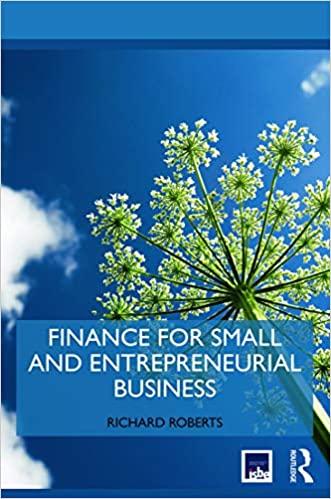Question
Read the case here and answer the following questions. This case discusses the creation of a bank to focus exclusively on Islamic finances. The case
Read the case here and answer the following questions.
This case discusses the creation of a bank to focus exclusively on Islamic finances. The case discusses some of the main differences between Western and Islamic banks.
What are some of the main aspects of Islamic finance that makes it difficult for banks based in the Western world to offer financial services?
Karachi: Malaysia's plan to create Asia's first multinational Islamic bank may increase the ability of syariah-compliant lenders to carry out larger sukuk deals, after global sales more than doubled to US$14.7bil this year.
A licence for the bank will be awarded in the third quarter, Bank Negara governor Tan Sri Dr Zeti Akhtar Aziz said in a July 18 interview in Jakarta. She said in October the lender would be formed by institutions from Asia and the Middle East with a market capitalisation of US$1bil. The amount may grow to about US$10bil in six to 10 years, according to Singapore-based Five Pillars, an Islamic finance advisory firm.
Syariah-compliant lenders were too focused on the domestic market and the new bank would concentrate on international business, helping to accelerate growth in the Islamic finance industry, Zeti said. The capital base of dedicated Islamic banks in the South-East Asian nation is inadequate to arrange sukuk sales of more than US$500mil, according to Kuala Lumpur-based Bank Islam Malaysia Bhd (BIMB).
"If Islamic finance is ever going to be a real alternative to the conventional banking system we need to have a huge multinational bank with a huge balance sheet to do deals," Norashikin Mohd Kassim, general manager and treasurer at BIMB, the nation's oldest syariah-compliant lender, said in an interview on July 19.
Bank Islam had a capitalisation of RM2.3bil as of Dec 31, while Bank Muamalat's was RM1bil at the end of March last year, according to the lenders' respective annual reports. Maybank Islamic Bhd, a unit of Malayan Banking Bhd, had a capitalisation of RM110.6mil as of June 30, 2010, while CIMB Islamic Bank Bhd's was RM550mil at the end of 2009, according to their annual reports.
"The creation of a mega Islamic bank is another avenue for the Government to attract foreign financial resources, creating more liquidity for the Malaysian market," Kuala Lumpur-based Mohd Razlan Mohamed, chief executive officer at Malaysian Rating Corp, the smaller of the nation's two rating companies, said in an interview yesterday. "Any attraction or invitation for financial capital or financial resources is very much welcomed."
The Bloomberg Malaysian Sukuk Ex-MYR Index, which tracks foreign-currency Islamic debt sold by companies and governments
in Malaysia, climbed to a record high of 103.9860 on Wednesday.
Global sales of syariah-compliant bonds, which pay returns on assets to comply with Islam's ban on interest, are rising this year as countries in the Middle East and Asia embark on programmes to build new railways, roads and power plants.
Qatar planned to spend US$88bil as it prepare to host the soccer World Cup in 2022, Qatar National Bank SAQ assistant general manager Enrico Grino, who oversees project finance, said on May 16. Prime Minister Datuk Seri Najib Tun Razak has laid out a 10-year, private-sector led US$444bil development plan under a so-called economic transformation programme, including investments by Exxon Mobil Corp, Royal Dutch Shell and Carrefour SA.
The new bank will play a role in providing financing for "bigger" projects under Malaysia's programme, Kuala Lumpur-based
Badlisyah Abdul Ghani, chief executive at CIMB Islamic Bank, a unit of CIMB Group Holdings Bhd, said in an interview on Wednesday.
Average yields on global syariah-compliant debt dropped 96 basis points this year to 3.77% on July 19, the lowest level since February 2005, according to the HSBC/Nasdaq Dubai US Dollar Sukuk Index.
Sukuk returned 6% this year, according to the HSBC/Nasdaq Dubai US Dollar Sukuk Index. Debt in developing markets rose 5.7%, JPMorgan's EMBI Global Index shows.
Step by Step Solution
There are 3 Steps involved in it
Step: 1

Get Instant Access to Expert-Tailored Solutions
See step-by-step solutions with expert insights and AI powered tools for academic success
Step: 2

Step: 3

Ace Your Homework with AI
Get the answers you need in no time with our AI-driven, step-by-step assistance
Get Started


